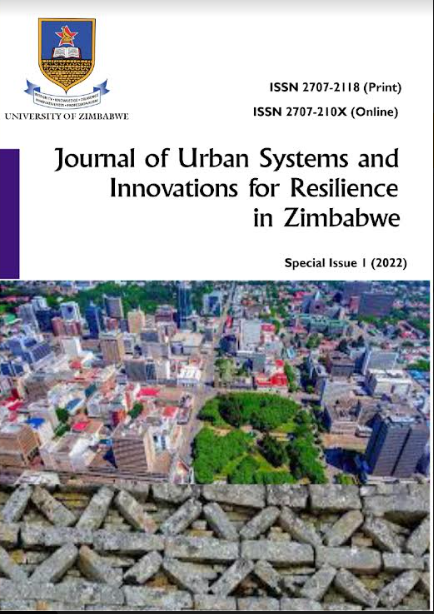Infrastructure Self-provisioning on Urban Peripheries: Sustainability and Settlement Governance Implications
Keywords:
Residents, emerging settlements, self-provisioning, infrastructure development, community-based service deliveryAbstract
The study discusses community-based infrastructure provision strategies that are used to improve the settlements of the urban poor. It engages with the question of how residents in settlements of the urban poor access services that would otherwise be provided with state support. This is in recognition of the fact that the Zimbabwean state (local and national) is less active than local communities and their organisation in service provision. A complex web of structures, agents, processes, and relations influence access to services in the emerging settlements. Based on evidence from a household survey, focus group discussion (FGD) sessions, resident interviews, and literature review, the article explores the array of context-specific determinants of access to and use of livelihood and infrastructure-related services. Residents work as individual households and collectively towards infrastructure provision. The combined contributions are indicative of the hope that communities of the urban poor can improve their settlements. Their efforts require more strategic support by the state alongside non-state actors at different levels. Such leveraging on community-based strategies is key to the transitioning of settlements of the urban poor from marginalisation and under-served ones into sustainable and well-governed settlements.




